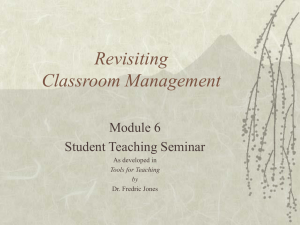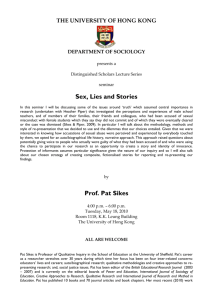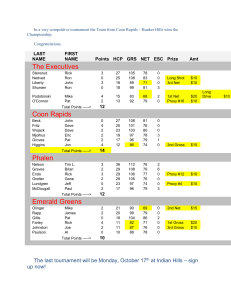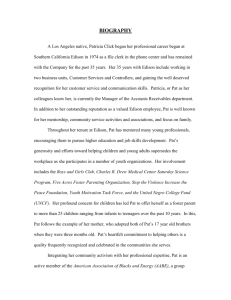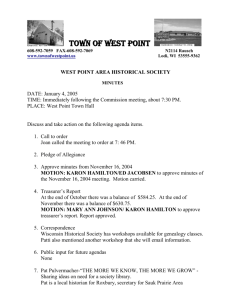K Long Term Sick Case Study and Answers.FINAL_
advertisement
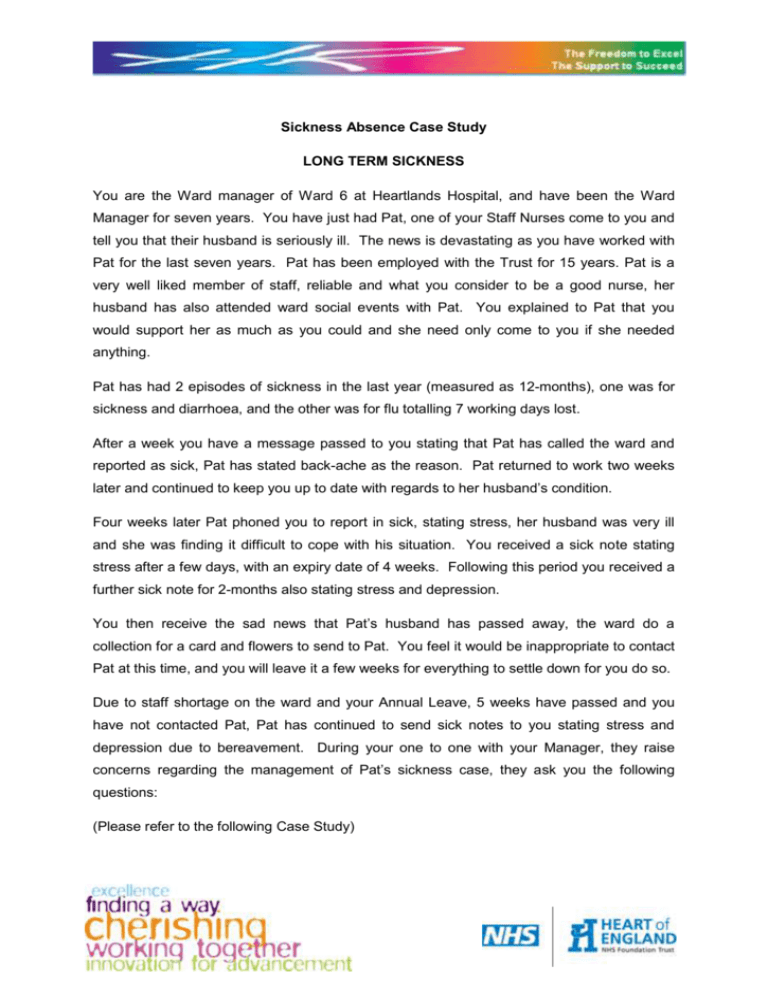
Sickness Absence Case Study LONG TERM SICKNESS You are the Ward manager of Ward 6 at Heartlands Hospital, and have been the Ward Manager for seven years. You have just had Pat, one of your Staff Nurses come to you and tell you that their husband is seriously ill. The news is devastating as you have worked with Pat for the last seven years. Pat has been employed with the Trust for 15 years. Pat is a very well liked member of staff, reliable and what you consider to be a good nurse, her husband has also attended ward social events with Pat. You explained to Pat that you would support her as much as you could and she need only come to you if she needed anything. Pat has had 2 episodes of sickness in the last year (measured as 12-months), one was for sickness and diarrhoea, and the other was for flu totalling 7 working days lost. After a week you have a message passed to you stating that Pat has called the ward and reported as sick, Pat has stated back-ache as the reason. Pat returned to work two weeks later and continued to keep you up to date with regards to her husband’s condition. Four weeks later Pat phoned you to report in sick, stating stress, her husband was very ill and she was finding it difficult to cope with his situation. You received a sick note stating stress after a few days, with an expiry date of 4 weeks. Following this period you received a further sick note for 2-months also stating stress and depression. You then receive the sad news that Pat’s husband has passed away, the ward do a collection for a card and flowers to send to Pat. You feel it would be inappropriate to contact Pat at this time, and you will leave it a few weeks for everything to settle down for you do so. Due to staff shortage on the ward and your Annual Leave, 5 weeks have passed and you have not contacted Pat, Pat has continued to send sick notes to you stating stress and depression due to bereavement. During your one to one with your Manager, they raise concerns regarding the management of Pat’s sickness case, they ask you the following questions: (Please refer to the following Case Study) Case Study Questions – Long Term Sickness 1. You have you not moved Pat to a formal stage of the Trust sickness policy, what is the trigger-point for long term sickness as determined in the Trust Sickness Absence Policy? 2. When you receive a sick note stating stress and depression what should you do? 3. What questions are you going to ask Occupational Health regarding Pat? 4. When you meet with Pat, what questions are you going to ask her? 5. Pat has asked you about what sick pay benefits she is entitled to, what would you advise her? Skness Absence Case Study – Long Term Sick (Page X) Model Answers 1 You have you not moved Pat to a formal stage of the Trust sickness policy, what is the trigger point for long term sickness in the Trust sickness absence policy? Long Term – relates to a situation where the employee either is absent for 4 weeks or more or has had recurrent periods of time absent with a serious or underlying health problem. 2 When you receive a sick note stating stress and depression what should you do? All absences relating to mental health conditions such as Stress/Anxiety/Depression need to be monitored carefully. You should always discuss the management of these cases with your HR Advisor and seek professional medical advice from Occupational Health. 3 What questions are you going to ask Occupational Health regarding Pat? When referring an employee to Occupational Health it is always useful to have an idea of what information you would like to find out and ask specific questions such as: What is the diagnosis for the employee? What is the long term prognosis? How likely is this condition to flare up again in the future, causing absence from work? When is the employee likely to be able to return to work? Is the condition likely to be considered a disability under the DDA? Are there any reasonable adjustments that could be made in order to allow the employee to return to work? 4 When you meet with Pat what questions are you going to ask Pat? When meeting with the employee under the sickness absence policy it is important to maintain a balance between being supportive and actively managing the absence in a fair and consistent way. The Type of questions you should be asking are: 5 How are you feeling now? What sort of treatment are you receiving? What have the doctors told you about your condition and its long term effects? Have you been to see Occupational Health / discuss any reports with them When do you think you are likely to be able to return to work? Update the employee on any significant changes at wok that they may not be aware of Review previous absence history Remind employee of sickness absence policy and where they are in terms of stage 1 or 2 and potential referral to stage 3 if at that point in the process Pat has also asked you what sick pay benefits she is entitled to, what would you advise her? Employees absent from work owing to illness will be entitled, subject to the conditions of this agreement, to receive sick pay in accordance with the scale below: • during the first year of service – one month’s full pay and two months’ half pay • during the second year of service – two months’ full pay and two months’ half pay • during the third year of service – four months’ full pay and four months’ half pay • during the fourth and fifth years of service – five months’ full pay and five months’ half pay • after completing five years of service – six months’ full pay and six months’ half pay.


